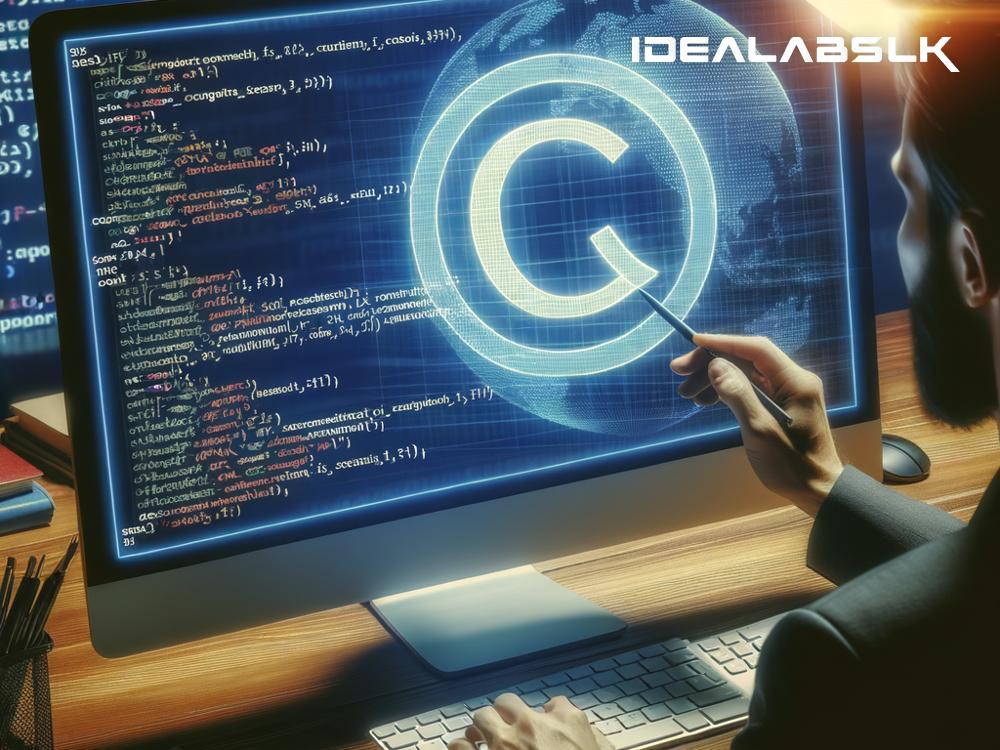Understanding How Copyright Affects Web Development Tools: A Simplified Guide
In the digital world, web development is akin to constructing buildings in an urban area. Just like builders need bricks, cement, and tools to create structures, web developers rely on coding languages, libraries, frameworks, and various tools to construct websites and applications. However, amidst the excitement of crafting these digital experiences, one crucial aspect that often gets overlooked is copyright. Let's simplify how copyright impacts web development tools and what developers need to know to navigate this landscape responsibly.
What is Copyright?
First things first, copyright is a form of intellectual property protection given to the creators of original works. This includes everything from books and music to software and, yes, web development tools. It provides the creators with exclusive rights to use, distribute, and modify their creations as they see fit. While it helps protect the hard work of creators, it also introduces several considerations that web developers must be mindful of when selecting and using tools to build websites and applications.
Web Development Tools: Open-Source vs. Proprietary
Web development tools can broadly fall into two categories: open-source and proprietary.
-
Open-Source Tools: These are freely available to the public to use, modify, and distribute. Examples include frameworks like Angular and React, or languages like Python and PHP. The ethos behind open-source is all about collaboration and sharing. However, "free" doesn't mean without conditions. Most open-source tools come with licenses like MIT, GPL, or Apache, which specify how they can be used. Some might require you to attribute the original creator, while others might stipulate that any modifications you make also need to be open-source.
-
Proprietary Tools: These are owned by an individual or a company and often require purchasing a license to use. Adobe Photoshop and Microsoft Windows are classic examples of proprietary software. When it comes to proprietary tools in web development, the usage rights, limitations, and conditions are defined by the vendor. This can sometimes limit flexibility but offers stability and support that some open-source tools might lack.
Copyright Impact on Web Development
When building websites or applications, developers use a mix of these tools. Each tool's copyright status influences how it can be used, and understanding this is vital for a few reasons:
-
Legal Compliance: Using a tool against the terms of its license can lead to legal repercussions. For example, incorporating a proprietary library without the proper license in your project could result in litigation or hefty fines.
-
Project Sustainability: If an open-source tool you're heavily relying on has a restrictive license, it might limit how you can distribute or commercialize your project. Knowing the licensing terms helps ensure that your project remains viable and sustainable in the long run.
-
Community Contribution: Many developers feel a sense of responsibility to contribute back to the open-source community. Understanding copyright and licensing terms can inform you how best to contribute, whether by sharing code improvements or financially supporting the project.
Best Practices for Developers
To navigate copyright while utilizing web development tools, consider these best practices:
-
Research and Understand Licenses: Before integrating any tool into your project, take the time to understand its license. Simple licenses like MIT are permissive and straightforward, but others can be more complex. When in doubt, consult with someone knowledgeable in copyright law.
-
Keep Track of Tool Usage: Maintain clear documentation of all the tools, libraries, and frameworks you use in a project. This includes noting down their versions and licenses. Such a habit helps in ensuring compliance and makes it easier to manage updates or license changes.
-
Contribute Responsibly: If you're using open-source tools and have made improvements or found bugs, consider contributing back. However, remember to check the project's guidelines on contributions. Some projects require you to sign a Contributor License Agreement (CLA) outlining how your contributions can be used.
Wrapping Up
In essence, copyright plays a pivotal role in the web development ecosystem. It governs how tools can be used, modified, and distributed, impacting everything from legal compliance to project sustainability. By understanding and respecting copyright and the associated licenses, developers can not only avoid potential legal pitfalls but also contribute positively to the ongoing evolution of web development tools. Armed with this knowledge, developers can focus on what they do best – creating innovative and dynamic digital experiences.
By navigating the intricacies of copyright with care and consideration, web developers ensure that their digital creations are not only legally compliant but also respectful of the intellectual property rights of others. In doing so, they uphold the principles of collaboration, innovation, and respect that are at the heart of the tech community.

